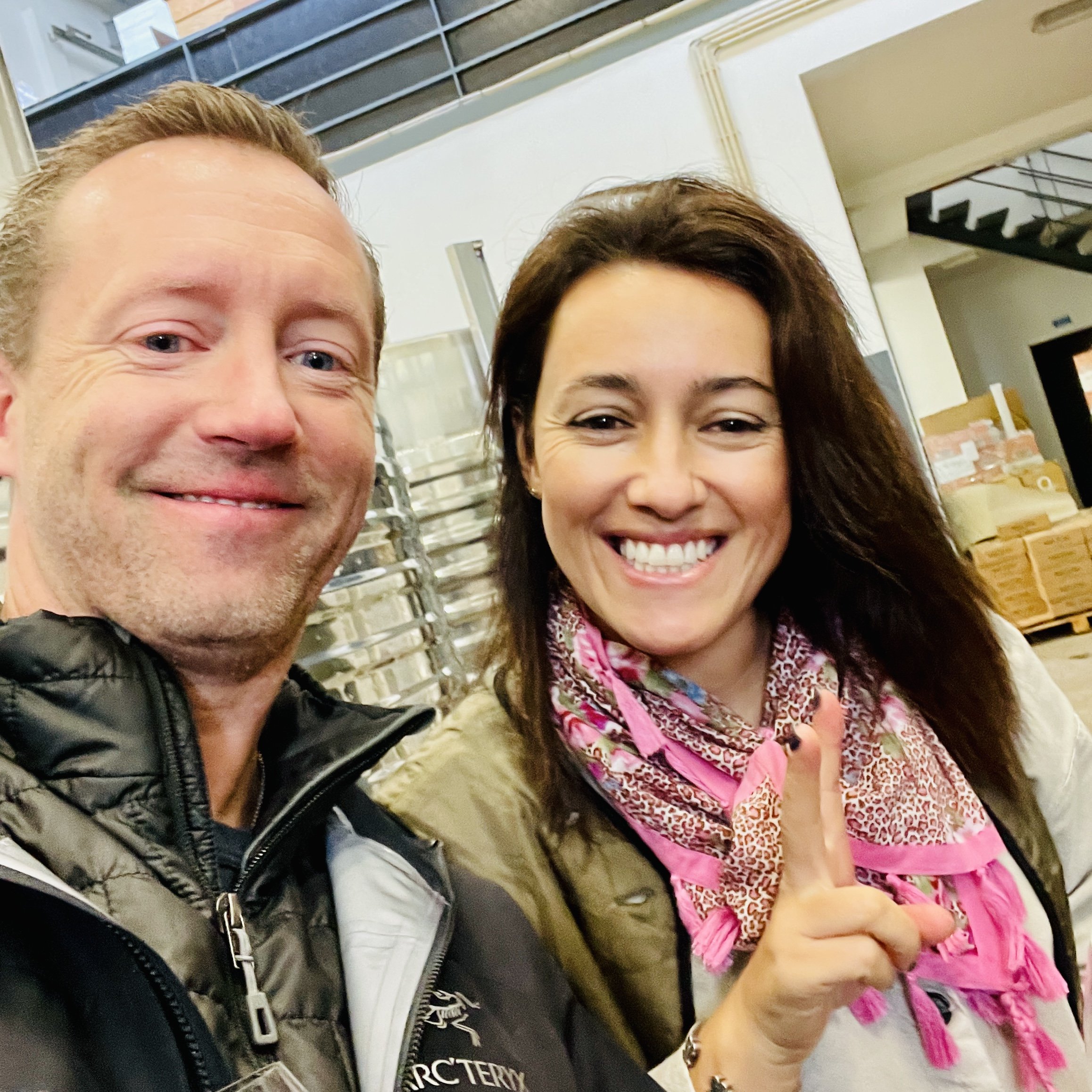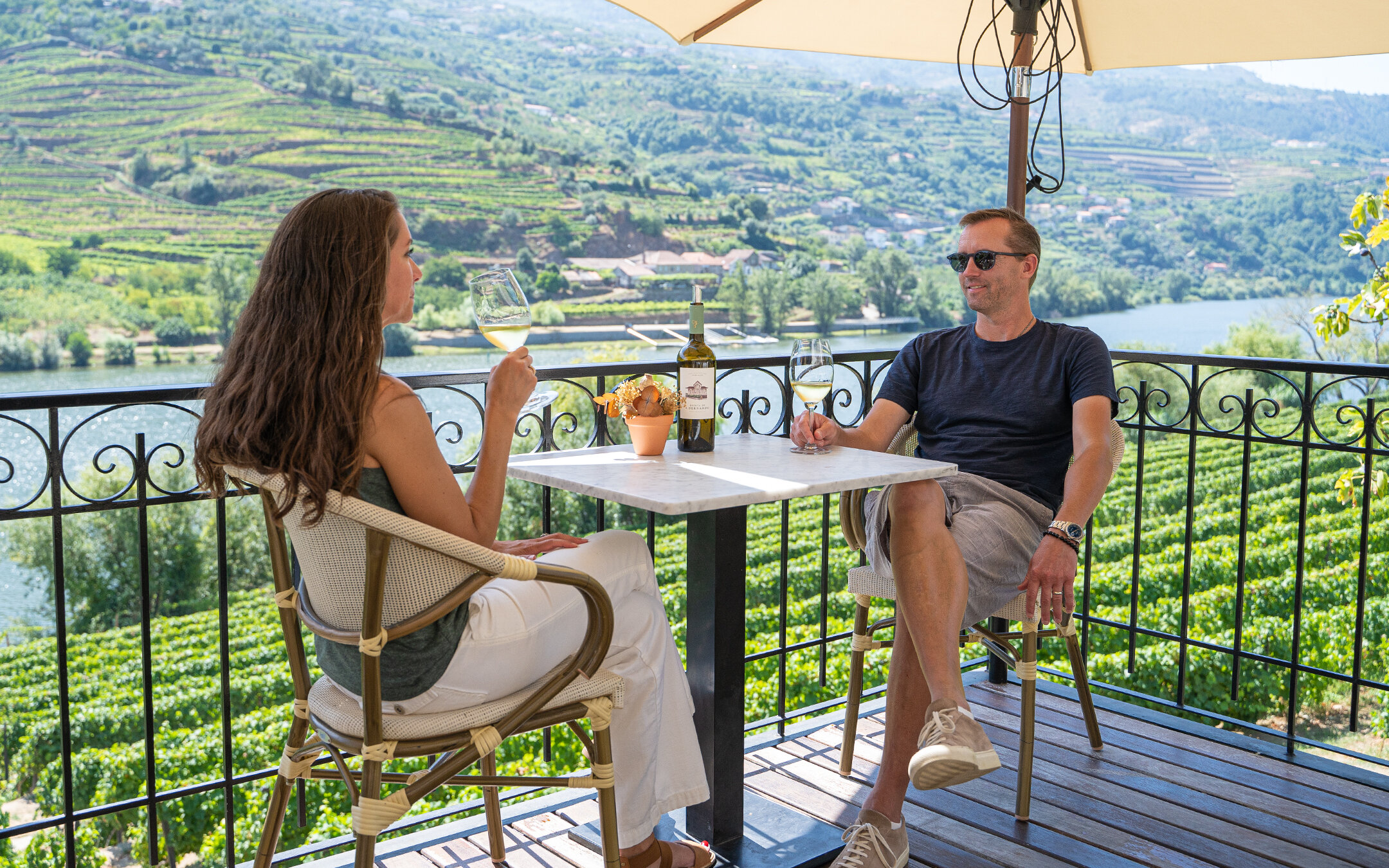Spring 2022 Wine Club
The six club wines are detailed below and I’m excited to introduce you to new producers and wines. The wines span the Douro Valley, Vinho Verde, and Alentejo wine regions. We will have two live events to dive into the wines together.
Special Event Details
Vinho Verde Wine Webinar - Live!
This shipment brings Wine Club Members two incredible wines from the Vinho Verde region through Quinta de Santiago. Joana Santiago is the fourth generation to run the Santiago family estate in northern Portugal, a property that has been in her family for more than 100 years. We’ll take a deep dive into the Vinho Verde wine region and Joana will join me, Ryan Opaz, and Club Members live via Zoom to taste her wines together and talk about Vinho Verde wines. Live and interactive… don’t miss it!
TBD at 2pm PT / 5pm ET via Zoom
RSVP to: jeff@jdselections.com
Wine Tasting with Rafa de Lima
Rafa is back! Regular Wine Club tasting host, Rafa returns. He is a featured contributor on the AirBnB "Experiences" platform, conducting online wine seminars globally. His professional wine and hospitality experience includes Ritz Carlton locations in Europe and the US, the Rosewood in London, and Michelin Star restaurants in the South of France. He now owns de Lima's Wine Bar in Porto. And… he is absolutely NOT fun to hang out and drink wine (or beer) with!
TBD at 2pm PT / 5pm ET via Zoom
RSVP to: jeff@jdselections.com
Your Personal Portugal Concierge
My vision for JD Selections centers around delivering you incredible wines representing the best of Portugal. Travel is inextricably linked with food and wine. Having traveled Portugal extensively, the travel resource pages will always be up-to-date with my insider tips to ensure an awesome experience. Wine Club Members receive special discounts at partner hotels. Consider me at your disposal to help you make the most of your Portugal adventure whenever it happens.
Spring 2022 Club Wine Details
2019 Quinta do Javali Cherry Tree Tinto
Quinta do Javali has its roots in traditional Douro port and table wines, and is a family-owned business spanning 18 hectares (44 acres) in the heart of the Douro Valley. The farm has a heritage of winemaking dating back to the 17th century and has been in the Mendes family since 1982. Against this backdrop, António Mendes has created one of the more forward thinking wine projects happening in Portugal today. He’s taken a relatively small part of the land and over the past few years converted it to a fully certified organic and biodynamic vineyard… an unheard of practice in traditional Douro!
The vineyards are guided by slabs of slate, plowed by horse, and tilled by wild pigs (Javali in Portuguese). Work in the vineyards is guided by the celestial cadence of Steiner’s calendar and monitored by meteorological stations installed throughout the property. This is next level, heroic viticulture and a monstrous understatement to say that António is years ahead of his port producing contemporaries with his work at Javali.
Further investments in the winery allow for varietals and plots to be vinified separately. Decisions are rooted in the conviction of showing terroir, expressing the land as purely as possible, and driving the Douro’s reputation for authentic table wines forward. Lucius Annaeus Seneca’s quote “If one does not know to which port one is sailing, no wind is favorable” is mounted above the cellar and proclaims Javali’s bold vision for Douro wines.
The 2019 Cherry Tree Tinto is a field blend of red grapes grown on old vines. More than 30 grape varietals exist in the vineyard, all harvested by hand and vinified together in used French oak barrels. Fermentation is natural and spontaneous and the wine ages 12 months in used oak barrels. I was delighted to discover this wine in Lisbon in the summer of 2021, and to bring it to you for your enjoyment.
2018 Quinta do Javali Stone Vineyard Tinto
As with the 2019 Javali Cherry Tree Tinto mentioned above, all aspects of the Stone Vineyard are guided by a strict adherence to biodynamic principles. Biodynamic wines are produced from grapes that are grown in vineyards farmed with biodynamic principles, where a holistic approach to viewing a vineyard as an ecosystem rather than a single entity is applied. In addition to not using chemicals and following all of the rules of organic certification, these principles are based on the writings of Austrian philosopher Rudolf Steiner and focus on maintaining balance and equilibrium throughout a vineyard. These principles include executing vineyard practices on certain days, following the lunar calendar, and creating special composts to generate soil fertility.
This is not a common practice in Portugal, and is far forward of common viticultural practices in the Douro Valley. That said, these practices produce a wine of incredible authenticity to the land. The outcome on both 2019 Cherry Tree and 2018 Stone Vineyard sets a benchmark in the Douro for which António Mendes and his family will build upon and others will take note and follow.
Like 2019 Cherry Tree, the Stone Vineyard as its immediate neighbor is an old vine field blend of 30-plus grapes. They are all grown, hand harvested, and vinified together. 100% whole bunch clusters are used and the location of these vines tend to provide a slightly longer maturation. The grapes ferment naturally and spontaneously in used French oak barrels and age there for 12 months before bottling. The wine is ruby red in color with a strong fruit profile on the nose (strawberries, blackberries, and red plums). The structure of the wine is incredibly balanced. The minerality conferred by the terroir of Fonte do Santo allows for an elegant tasting experience.
2018 Miguel Louro Apelido Tinto
Last shipment I introduced you to the wines of Miguel Louro from the Alentejo wine region (wine map). His wines were so popular, I had to include one more red wine this shipment. Miguel Louro’s family has been making wines in the northern part of the Alentejo around the village of Estremoz since 1979. He grew up surrounded by wine culture at Quinta do Mouro, the family’s farm. After studying Agronomical Engineering at the University of Lisbon, Miguel completed internships in the Douro Valley and gained international experience making wines in Italy and Germany.
Miguel began his eponymous wine project in 2010 to fulfill his desire to create wines that respect the deep history and tradition of the Alentejo region but do so without make-up or intervention. From 5 hectares of vineyards in Estremoz, he seeks to produce wines with freshness in an area known for great terroir. The vineyard is farmed with organic practices to promote and ensure the health of his land and surrounding environment. He takes a strictly minimal approach in the winery, producing wines low in alcohol content and full of the character representing the special place where they are from.
2018 Apelido Tinto is a blend of Trincadeira, Touriga Franca, Touriga Nacional, and Aragonez. Grapes were harvested by hand in September and fermented in stainless steel tank. It was bottled 10 months later. This wine is meant to be drank a bit younger and the 2018 feels incredibly fresh now and I’d think over the next few years. It is a gastronomic wine, and I recommend drinking it with a wide variety of food from chicken, meat-based dishes, pasta, or even pizza. Pop, pour, and enjoy!
2019 Pormenor Tinto
One year ago I introduced Club Members to the wines of Pormenor (details in Portuguese). Pedro Coelho, the owner and winemaker, is not only one of my original import partners, but has become a family friend. His wines continue to showcase the potential and exceptional quality of the Douro Valley.
Pedro is hyper focused on the details that count when delivering incredible wines. Pormenor is in the eastern part of the Douro Valley, called Douro Superior and is one of the producers at the forefront of bringing the entire Douro Valley forward in viticultural and winemaking practices. His first vintage was 2013, which is relatively new in the span of old world wine production. But, in terms of organic viticulture and minimal intervention techniques in the winery, he has been revolutionary in the part of Portugal best known for traditional port wines.
One of Pedro’s “must-have” details is old vines. Through old vines, Pedro believes a vineyard can best express itself in the fruit. The grapes for Pormenor Tinto are from a field blend 60 years in age and composed of traditional red grapes of the Douro all planted together: Touriga Franca, Tinta Roriz (known as Tempranillo in neighboring Spain), Tinta Amarela, Tinta Barroca, and Rufete. As with all harvests at Pormenor, it is done by hand. After sorting at the winery, grapes were pressed with partial stems and fermentation occurs naturally with native yeast in stainless steel tanks. The wine is macerated for four weeks. Maceration is a winemaking practice that leaves the skins, seeds, and stalks of the grapes in contact with the juice. This can optimize the structure and flavor of the wine and it is a judgement call by the winemaker as to how long to macerate. The wine is then aged for 20 months in 225-liter used French oak barrels before bottling. It is naturally stabilized and unfiltered, so you might notice natural sediment in the bottle especially with age.
Pormenor Tinto is one of a few reference Douro reds for me. When someone asks me for a red wine best representing Douro’s future, I point them to this bottle. The principles of Pormenor and Pedro’s process to avoid all unnatural additives in the vineyard or winery bring forth purity in this wine. Fresh, elegant, strong natural acidity, well-rounded tannins, and the aging in barrels is well integrated. Cheers!
2020 Quinta de Santiago Chapim Alvarinho
Alvarinho is back! As one of the signature grape varietals in Portugal (and the Iberian Peninsula overall) this is a grape I love to enjoy, talk about, and share. My favorite producer of Alvarinho is Quinta de Santiago. Quinta de Santiago is a family-owned farm spanning 7.5 hectares (18.5 acres) along the banks of the Minho River in the Monção and Melgaço sub-region of Vinho Verde. It has been in the Santiago family since 1899. For about 100 years, Quinta de Santiago's main activity was the production of wines, olive oil, lupine, cereals, milk, meat, and fruit for self-consumption. Grapes grown in the vineyards were sold to large cooperatives in the region. This changed in 2009 and from the passion and determination of then owner, Grandma Mariazinha Santiago (aged 86), her children, and grandchildren, a boutique winery was born.
Now at the head of the family’s winery is Joana Santiago, a self-described “authentic Minho woman” - driven to honor her family’s heritage. It is from a multi-generation devotion to the family’s land and vineyards that the special qualities of Quinta de Santiago are rooted. Three generations of the Santiago family combine tradition, modernity, and enthusiasm to create authentic wines expressing the terroir of the region’s and farm’s native varietals.
Not content to simply showcase some of the country’s finest Alvarinho, Joana is pushing the boundaries and highlighting specific vineyards from the family farm. This bottle of Alvarinho comes from a single vineyard known as Chapim. Single vineyard wines are common in many parts of the wine world, but to do so in the cradle of Portuguese Alvarinho, Monção and Melgaço, it is rare. Blends of multiple vineyards dominate, but Joana wants to show the terroir of this specific, special vineyard in its solo glory. And we are glad she does as I’m hopeful you agree upon tasting the wine. Grapes are harvested by hand followed by a gentle press. Fermentation is spontaneous with native yeast in stainless steel vats. The wine ages for 9 months on the fine lees before bottling. This wine is both elegant and complex with hints of both citrus and orange blossom. In the mouth, there’s great tension and richness with the freshness characteristic of the varietal. Enjoy this with most starters, salads, oysters, fish, and white meats.
2019 Quinta de Santiago Cisma Loureiro
Along the northern border of Portugal and Spain, Quinta de Santiago is uniquely positioned to benefit from a microclimate ideal for growing Alvarinho but also another grape native to the region, Loureiro. The particular orientation of the Quinta (farm) shelters the vineyards from significant Atlantic influences but preserves thermal amplitudes ideal for ripening indigenous varietals. Soil is predominantly clay given the the proximity to the Minho River and viticulture follows organic practices.
Joana is hyper-focused on sustainability and biodiversity. She has organized and leads a group of regional growers focused on water use and the preservation of local natural resources. Wines are fermented with native yeasts and the aim is to let this special land and fruit tell the story in the glass.
Cisma is a joint-venture between Joana and Pedro Coelho, of Pormenor. Club Members are by now familiar with Pormenor through several bottles including the 2019 Tinto from this very shipment. These two winemakers share a common goal of advancing artisan Portuguese wines globally by letting the land and terroir do the talking… minimal human intervention. This is what makes their work special and why I love working with them. They are humble servants of Mother Nature.
2019 Cisma is 100% Loureiro grown on the Quinta de Santiago estate. After hand harvesting, the grapes are pressed and the juice decants naturally at low temperatures. 50% of the juice ferments in stainless steel vat and the other 50% in used French oak 500-liter barrels. The wine ages 9 months in the same vats used for fermentation, which shows an entirely different side of the Loureiro varietal than typical of this region. Loureiro is naturally fruity and exuberant, and Joana and Pedro wanted to showcase its “serious side”. The wine is incredibly approachable, so drink without food but it will also work with most lighter dishes. Perfect for the summer months ahead!









